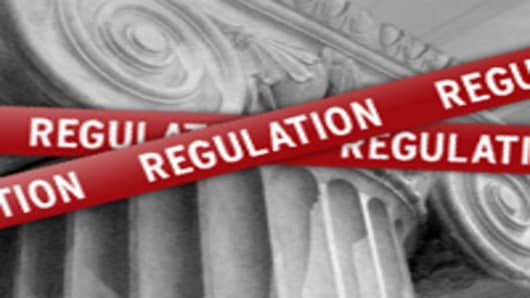"We don't need additional capital to prevent future bailouts. The government already has the orderly resolution authority to make sure that no one is too big to fail," one lobbyist told me.
In other words, banks are trying to use Dodd-Frank as a shield against the only plausibly effective shield against future bailouts.
I won't go into the case against resolution authority here. The FDIC says it will be effective. The banks agree. That's all you should need to know to throw the entire thing into doubt.
Unfortunately, the banks seem to have found gullible dupes among the Republicans, many of whom are all too eager to see new capital requirements as an attempt to over-regulate or interfere with market processes.
I know it is probably useless to try to teach politically-minded people anything. If they were open to persuasion they probably wouldn't be effective partisans to begin with. Ideological commitment, especially among the so-called moderates, is almost a pre-requisite to political success.
But let me try anyway.
The failure to impose additional capital requirements would allow our biggest banks to continue to enjoy the advantage of a decisive government subsidy. That subsidy comes in the form of the advantage they enjoy in funding their operations from the conviction among counter-parties that they will—come hell or high water—be bailed out.
Everyone in the world knows that there is no way Bank of Americaor Citigroup will ever be allowed to fail. Put all the anti-bailout language in the world into every bill passed by Congress, but no one will believe it. Everyone remembers that Barney Frank used to scream up and down the corridors of the Capitol Building that there was no government backing for Fannie Mae. As it turns out, there was. And is.
Higher capital requirements for the largest banks do not interfere with the operation of the free market. They are a necessary counterbalance to a government-created imbalance in the markets.
If you favor markets and oppose bailouts, there's really no choice but to support increased capital requirements for the biggest banks. The banks may talk a free market game, but all they are really doing is protecting their government-supplied subsidy.
_____________________________________
Questions? Comments? Email us atNetNet@cnbc.com
Follow John on Twitter @ twitter.com/Carney
Follow NetNet on Twitter @ twitter.com/CNBCnetnet
Facebook us @ www.facebook.com/NetNetCNBC



